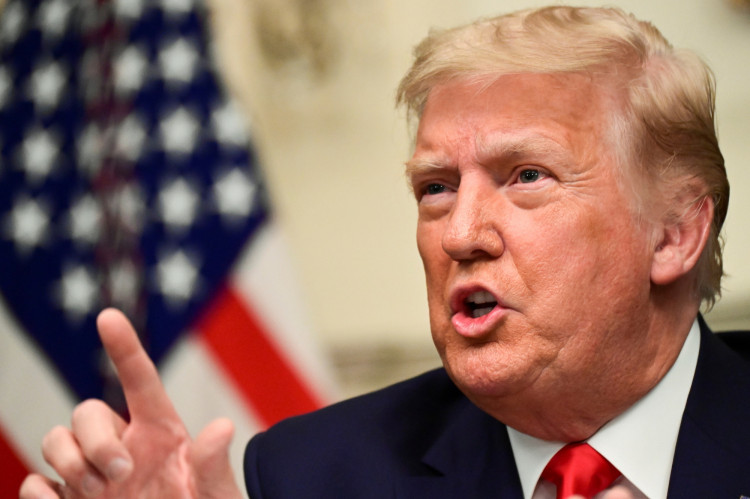President-elect Donald Trump vowed to make ending what he described as "transgender lunacy" a priority on his first day in office, marking a sharp pivot in national policy on gender identity and rights. Speaking at AmericaFest 2024 in Phoenix, Arizona, Trump declared that his administration would officially recognize only two genders, male and female, and implement sweeping measures to roll back transgender rights.
"With the stroke of my pen on day one, we're going to stop the transgender lunacy," Trump told a cheering crowd on Sunday. He outlined plans to sign executive orders to "end child sexual mutilation, get transgender individuals out of the military, and out of our elementary schools, middle schools, and high schools." Trump also pledged to ban transgender athletes from participating in women's sports. "Under the Trump administration, it will be the official policy of the United States government that there are only two genders," he said. "Doesn't sound too complicated, does it?"
The timing of Trump's comments coincided with the Senate's recent approval of the National Defense Authorization Act (NDAA), an $895 billion defense budget that includes provisions restricting military health benefits for transgender dependents. The NDAA prohibits Tricare, the military's health care system, from covering gender-affirming care for dependents under the age of 18. Senate Democrats, led by Senator Tammy Baldwin of Wisconsin, opposed the provision, which they argued would affect thousands of transgender youths in military families.
The Pentagon's policy change reflects broader political tensions over transgender rights. Republicans have increasingly targeted gender-affirming care, framing it as a dangerous imposition of "radical woke ideology." Columbia University's Department of Psychiatry has countered such claims, noting in a 2022 report that gender-affirming care "greatly improves the mental health and overall well-being of gender-diverse, transgender, and nonbinary children and adolescents." Despite this, Trump's proposals have found traction with his base, particularly as part of a broader cultural critique.
Beyond his comments on transgender rights, Trump used his Phoenix speech to outline other priorities for his administration. He reiterated his pledge to take dramatic action on immigration, including mass deportations, and to renegotiate control of the Panama Canal. The latter drew sharp rebukes from Panama's President José Raúl Mulino, who stated on X, "Every square meter of the Panama Canal and its adjacent zone is Panama's and will continue to be so. The sovereignty and independence of our country are not negotiable."
Trump also promised to address global conflicts, claiming he would end the war in Ukraine, stabilize the Middle East, and prevent "World War III." He described his vision for the United States entering a "golden age," framing his presidency as a pivotal moment for national and global stability.
While Trump's policies on transgender rights face fierce opposition from LGBTQ+ advocacy groups and civil rights organizations, his proposed actions resonate with conservative voters who see his approach as a necessary corrective to what they view as government overreach. These promises reflect a broader theme of Trump's campaign: a return to traditional values and a rejection of progressive cultural changes.
Critics argue that Trump's proposals could exacerbate discrimination and harm vulnerable populations, particularly transgender youth.






